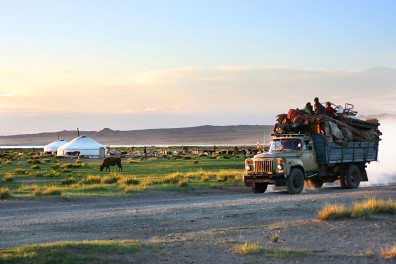The groundwater table in Mongolia is decreasing in arid regions, and degradation and desertification of the land due to shortage of water and precipitation have been intensifying. Since 2005, the country focuses on Integrated Water Resources Management (IWRM). There are currently 29 river basin organisations in the country, and GWP Mongolia will be working to improve the institutional capacity and management and development plans for these.
"We need a number of investments. The Asian Development Bank (ADB) and the World Bank are donor agencies that already work with us. The national government now also pays more attention to water management and since 2013 we have a new law allowing for a pollution fee; if you pollute water, you have to pay,” explains Dr. Basandorj.
GWP Mongolia has requested to have support from GWP on Urban Water Management related issues, as a first activity to be carried out in Mongolia. A workshop on this topic was arranged near Ulan Bator (in the Baigal camp) in August. It had 20 participants representing among others the Mongolian Ministry of Health, the Water Supply and Sewerage Utility of Ulan Bator, the National University of Mongolia, as well as the World Health Organization (WHO), UNESCO, WRG 2030 and local NGOs.
An introduction on urban water and waste water realities was made by Mongolian officials, while GWP introduced the concept of Integrated Urban Water Management (IUWM). The new approach was well received and participants were requesting to include this approach in Mongolia with a focus on water supply and waste management.
Based on this concept the new project ideas for improving urban and rural water management arrangements, as well as developing capacities for river basin organizations, will be elaborated and implemented in coming years in cooperation with different partners and donors. GWP Mongolia is part of the GWP Central Asia and Caucasus region.

